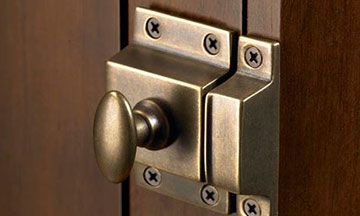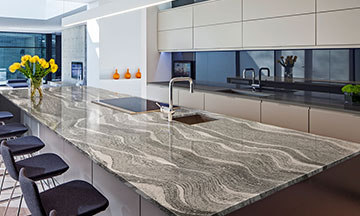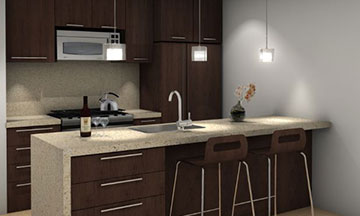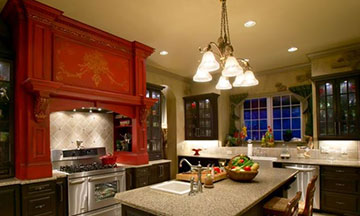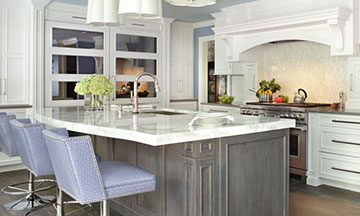Choosing Countertops
by C. Rosenberg
Kitchens were once all about functionality. Today’s homemakers want efficiency, durability, and aesthetics. Whether you’re rolling out cookies, dicing veggies, or otherwise prepping meals, chances are that you’re working on a countertop. Since countertops make for a large percentage of working surface in most kitchens, it’s important to choose them well.
Here’s a breakdown of the different types of countertops, and what you can expect from each one.
Granite
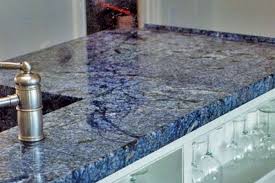 There’s a reason why granite countertops are high in-demand. Once a pricey option, granite prices have declined in recent years, making it an affordable option with a luxury look. Available in hundreds of colors and patterns, you’re sure to find a granite pattern that matches your personal style and your kitchen. Unlike other stone countertops, granite is hardy, scratch resistant, and tolerates heat well. However, granite is a porous material and should be sealed before installation so that it won’t absorb liquids and food remnants.
There’s a reason why granite countertops are high in-demand. Once a pricey option, granite prices have declined in recent years, making it an affordable option with a luxury look. Available in hundreds of colors and patterns, you’re sure to find a granite pattern that matches your personal style and your kitchen. Unlike other stone countertops, granite is hardy, scratch resistant, and tolerates heat well. However, granite is a porous material and should be sealed before installation so that it won’t absorb liquids and food remnants.
Marble
Renowned for its beautiful veining and elegant appeal, marble countertops are your top choice if it’s the luxury look you’re after. No two slabs of marble are the same, so your kitchen will always be ‘one of a kind’. Due to its formidable price tag, some homeowners utilize marble for an island, or select countertops, and use granite or quartz for other countertop surfaces. Additionally, marble is high maintenance, with stains and scratches showing easily. Being that it’s porous as well,marble countertops must be sealed annually to maintain beauty and longevity. The upside is that marble is heat-resistant and will never show your guests evidence of hot pots that were placed on countertops.

Quartz
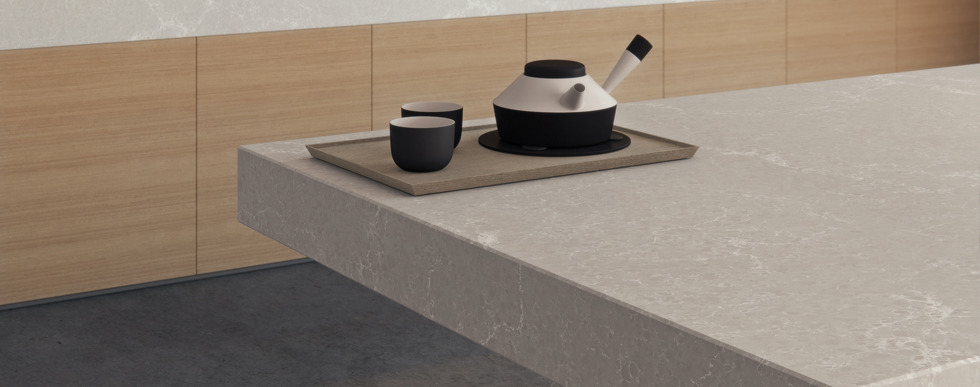
Quartz countertops are relatively new, but it is increasing in popularity. An engineered stone which is available in a vast range of colors,
quartz is hardier than natural stone and naturally scratch resistant. Since quartz is non-porous it doesn’t absorb liquid and food remnants, and therefore doesn’t breed bacteria. Some liken the design to marble, yet it doesn’t need the high-maintenance care that marble does.
Butcher Block
Butcher block countertops are a great eco-friendly option for those who like natural and earthy. The countertop is made of wooden boards and provides a warm, inviting feel. There are plenty of wood types to choose from, like maple, oak, and walnut.

However, butcher block countertops are high-maintenance. Ideally, they should be sealed and cleaned with gentle cleaning supplies. The good part is, that in case of damage, butcher block countertops can be easily restored.
Stainless Steel
Once primarily found in commercial kitchens, stainless steel countertops are gaining popularity with residential homeowners. A bit more 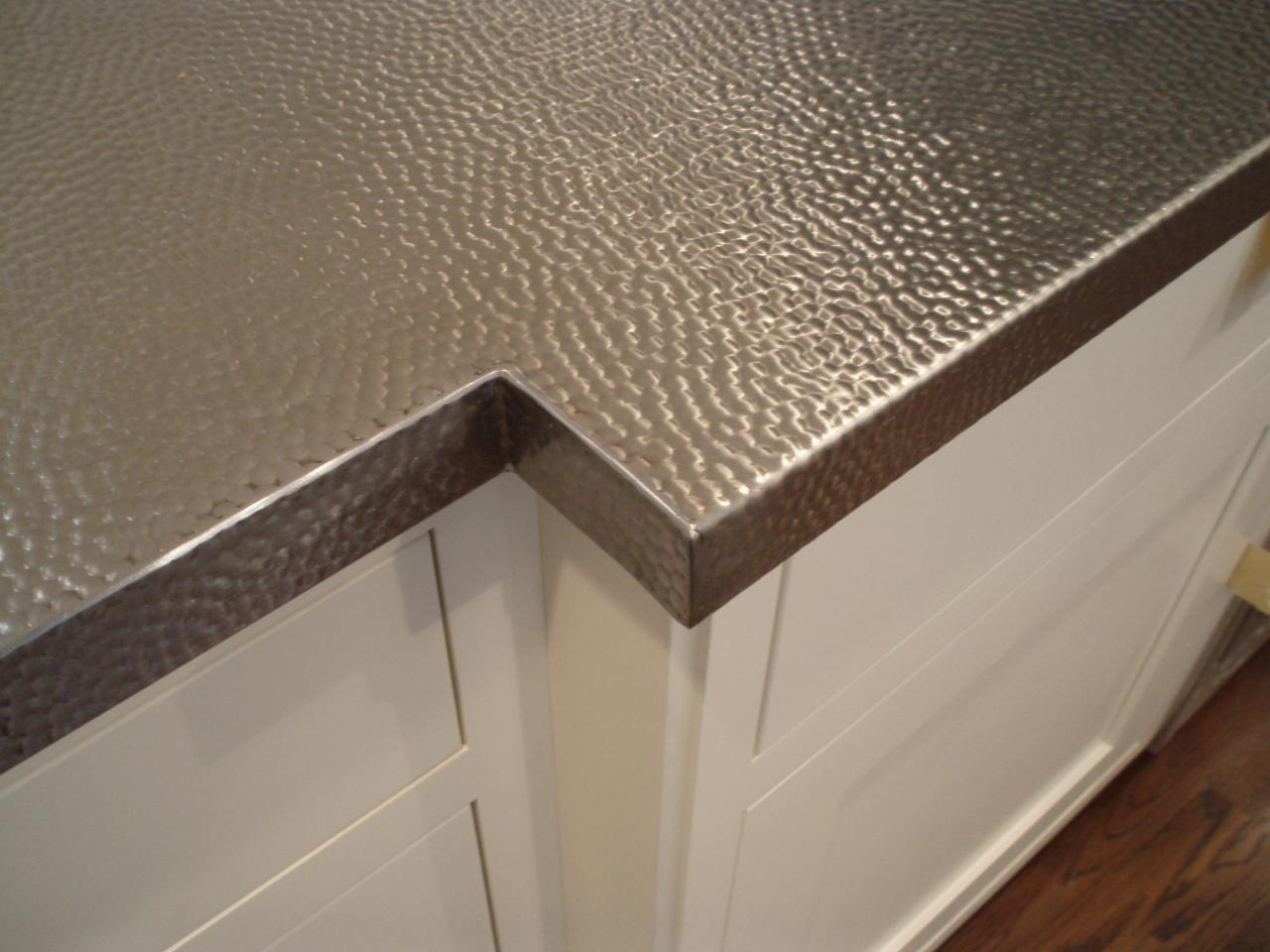 on the pricey end, they are available in a variety of finishes such as satin, mirror polish, brushed metal, and antique matte.
on the pricey end, they are available in a variety of finishes such as satin, mirror polish, brushed metal, and antique matte.
Durable, stain resistant, heat tolerant, and easy to clean, stainless steel countertops take a nice amount of abuse. However, they aren’t perfect. They show scratches more easily than other surfaces, and can get dented with heavy use.
Laminate
Laminate countertops are the most economical choice of all countertops, and are available in many colors, patterns, and textures. While they aren’t delicate, laminate countertops do have a shorter life span than other materials, and are susceptible to burns. You may also find that stains from deeply colored food sets in and can’t be cleaned. Water seeping through the seams can cause deterioration over time as
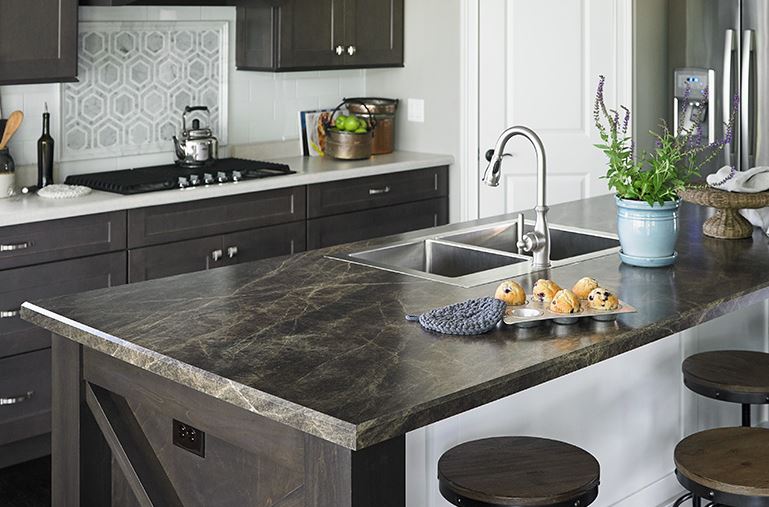
well. So, while laminate countertops are a popular choice for homeowners on a budget, most people with some cash to spare will go for one of the other options mentioned above.
~~~~~~~~~~~~~~~~~~~~~~~~~~~~~~~~~~~~~~~~~~~~~~~~~~~~~~~~~~~~~~~~~~~~~~~~~~~~~~~~

